Top 11 AI Agent Startups to Watch in 2026
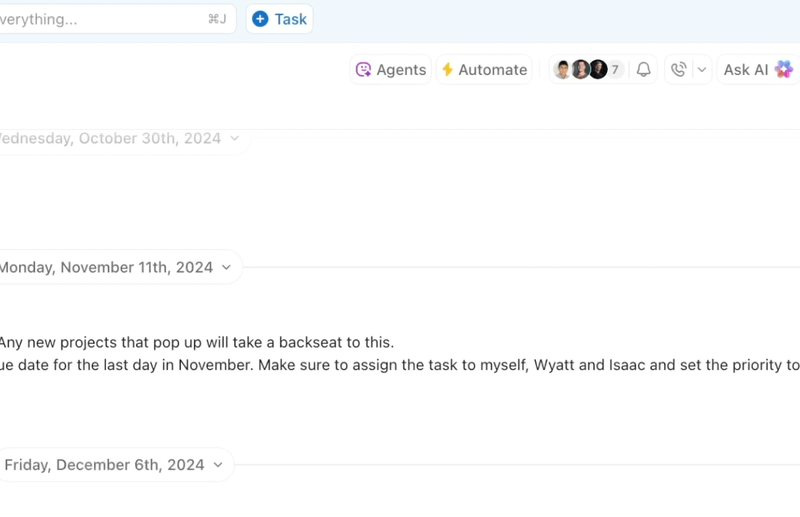
Sorry, there were no results found for “”
Sorry, there were no results found for “”
Sorry, there were no results found for “”

Nearly 8 in 10 senior executives say AI agents are already at work inside their companies, reshaping the way teams handle projects, decisions, and daily workflows. Two-thirds have even reported measurable productivity gains.
With this increase in adoption, many AI agent startups are building tools to help automate businesses and optimize workflows.
For founders, investors, and tech leaders, keeping an eye on this wave of startups means understanding where the future of autonomous software is headed.
In this blog post, we’ll highlight some of the most interesting AI startups to watch out for! Let’s get started. 👀
An AI agent is a software system that autonomously perceives its environment, processes data, and makes decisions to achieve specific goals.
AI Agents (or Agentic AI agents) combine perception, reasoning, and action, gathering information, analyzing it, and executing tasks to fulfill predetermined objectives while learning from feedback and experiences.
🧠 Fun Fact: AI agents for automation can operate in simulated environments to learn complex strategies. For example, DeepMind’s AlphaStar trained as an autonomous agent to play StarCraft II and ended up beating professional players in one of the world’s most complex strategy games.
Startups are taking the spotlight in the AI agent movement, and the numbers prove it. According to CB Insights, AI agent startups raised $3.8 billion last year, almost three times the funding they attracted the year before.
This level of investment signals curiosity and confidence from VCs and enterprises that agents are moving from experimental to essential.
Part of the appeal is speed. Unlike larger incumbents, startups can iterate quickly, adopt agent-first architectures, and test use cases directly with early adopters. This agility makes them the natural pioneers in shifting AI from passive assistants to autonomous problem-solvers.
Hear it from KPMG:
AI agents are swiftly moving into production, with momentum accelerating. Leaders not only view them as cost-cutting tools but also as drivers of growth and value creation. This rapid transformation intensifies pressure on trust, governance, data, leadership alignment, and workforce readiness. Early investors in these foundations are scaling confidently, positioning themselves to lead.
Here’s a quick overview of the top AI Agent startups:
| Tool | Best for | Best features | Pricing* |
| ClickUp | All-in-one team productivity for individuals, mid-market teams, and large enterprises | ClickUp Brain for contextual answers, AI Agents for workflow automation, Automations with 100+ templates, Brain MAX for OS-wide AI, Docs, Whiteboards, Chat | Free forever; Customization available for enterprises |
| Adept AI | Automating complex software and browser tasks for enterprise teams | Multimodal interface understanding, Adept Workflow Language (AWL), supply chain automation, financial doc processing, and healthcare compliance | Custom pricing |
| Crew AI | Developer-friendly multi-agent orchestration for distributed team workflows | Multi-agent ‘crews’ for research/content/QA, orchestration with Flows, cloud or self-hosted deployment, 1,200+ integrations, real-time performance metrics | Custom pricing |
| Lindy AI | No-code AI agent workflow automation for small businesses and scaling teams | Build agents with natural language, 2,500+ app integrations, inbox triage, meeting join + summarize, sales outreach automation | Free; Paid plans start from $49.99/month |
| Glean | Intelligent enterprise search and AI assistant for internal knowledge workflows | Semantic knowledge graph search, AI assistant for Q&A, automated onboarding support, IT service management, compliance workflows | Custom pricing |
| Penciled | AI-powered front office automation for physical therapy clinics | Automated scheduling + reminders, EHR integration (WebPT), real-time patient comms, waitlist cancellation handling | Custom pricing |
| Enhans | Retail-focused AI agent deployment for operational decision-making | Deploy custom AI agents in 7 days, Action Transformer personalization, multi-model decision-making, real-time market + ops data monitoring | Custom pricing |
| Naratix | E-commerce catalog enrichment and competitor tracking for online retailers | Clean + enrich raw product data, SEO-optimized descriptions, persona-based content tailoring, competitor monitoring, Shopify/ERP integration | Custom pricing |
| Pixel Robotics | Autonomous warehouse logistics for hybrid AMR-human fleets | PIXEL PT pallet transport robots, 3D sensing + mapping, fleet management for AMRs + manual, hybrid warehouse integration, 16h autonomous ops | Custom pricing |
| LangChain | Building LLM-powered apps and automations for R&D and dev-heavy teams | LangSmith debugging/monitoring, 600+ tool integrations, workflow orchestration with LCEL, memory + agent collaboration | Free developer tier; Pro plans start from $39/seat/month |
| Enso | Affordable AI agent marketplace for SMBs in sales, marketing, admin, and support | 300+ pre-trained agents, 70+ industry automations, marketing/sales/admin/legal coverage, LangChain integration, content + workflow scaling | $49/month per user |
Let’s explore some of the best AI agent tools you can use to speed up workflows and amp up productivity.
Our editorial team follows a transparent, research-backed, and vendor-neutral process, so you can trust that our recommendations are based on real product value.
Here’s a detailed rundown of how we review software at ClickUp.
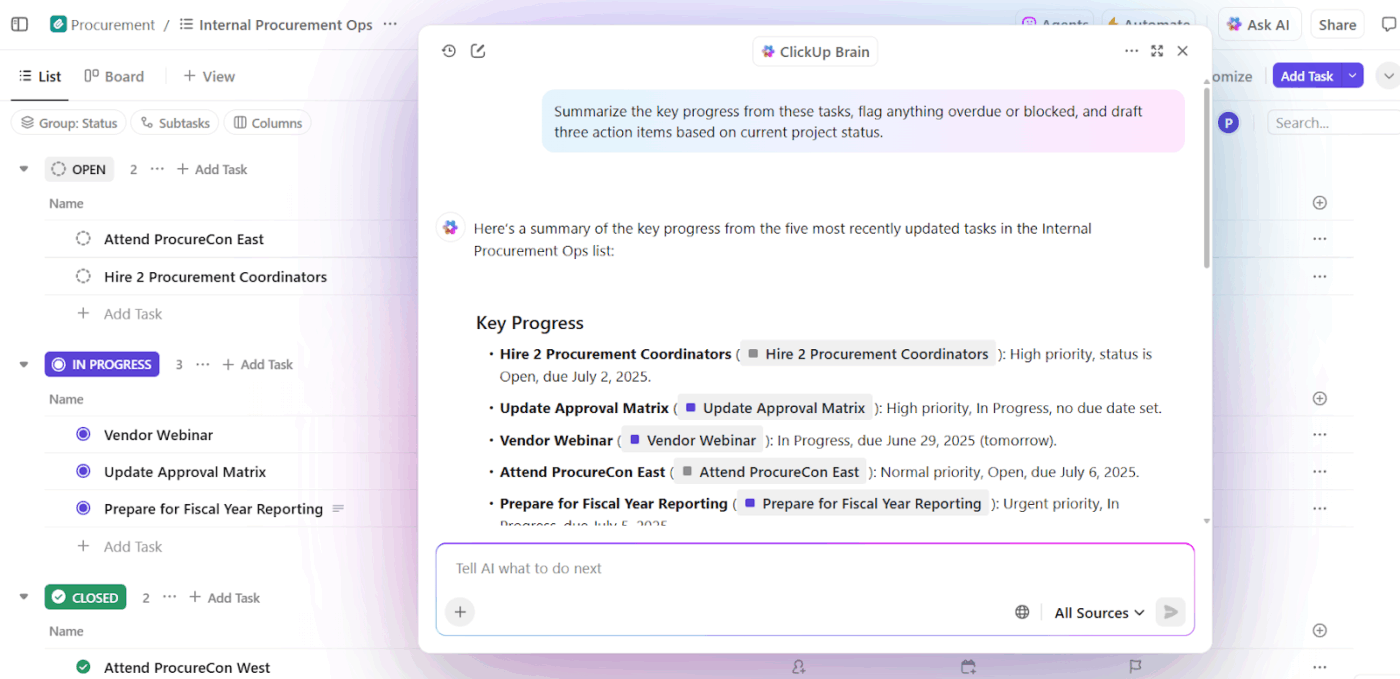
ClickUp is the everything app for work that combines project management, documents, and team communication, all in one platform—accelerated by next-generation AI automation and search.
It has an excellent ecosystem where each AI component connects and complements the others.
ClickUp Brain is a contextual AI layer embedded in your workspace. It can access your tasks, documents, chats, and external integrations like Google Drive, GitHub, Jira, and more. This means you can ask role-or project-specific questions and get context-rich replies instantly.
For instance, you don’t have to dig through dozens of docs to figure out your mobile app’s deployment process. You can just ask: ‘What’s our mobile app deployment process?’ and get a clear, synthesized answer drawn from related documentation, past tasks, and chats.

Building on ClickUp Brain’s intelligence are ClickUp AI Agents that actively execute work on your behalf:
Suppose a client raises a support request by submitting a form. A prebuilt AI Agent could detect this, create tasks and subtasks for each action, assign them based on team workload, and send summary updates automatically.
Here’s how setup works:
While ClickUp Brain and AI agents operate within the tool, the ClickUp Brain MAX extends AI’s reach as a desktop companion. It addresses AI sprawl, unifying search, automation, voice commands, and AI models across all your tools to give you:
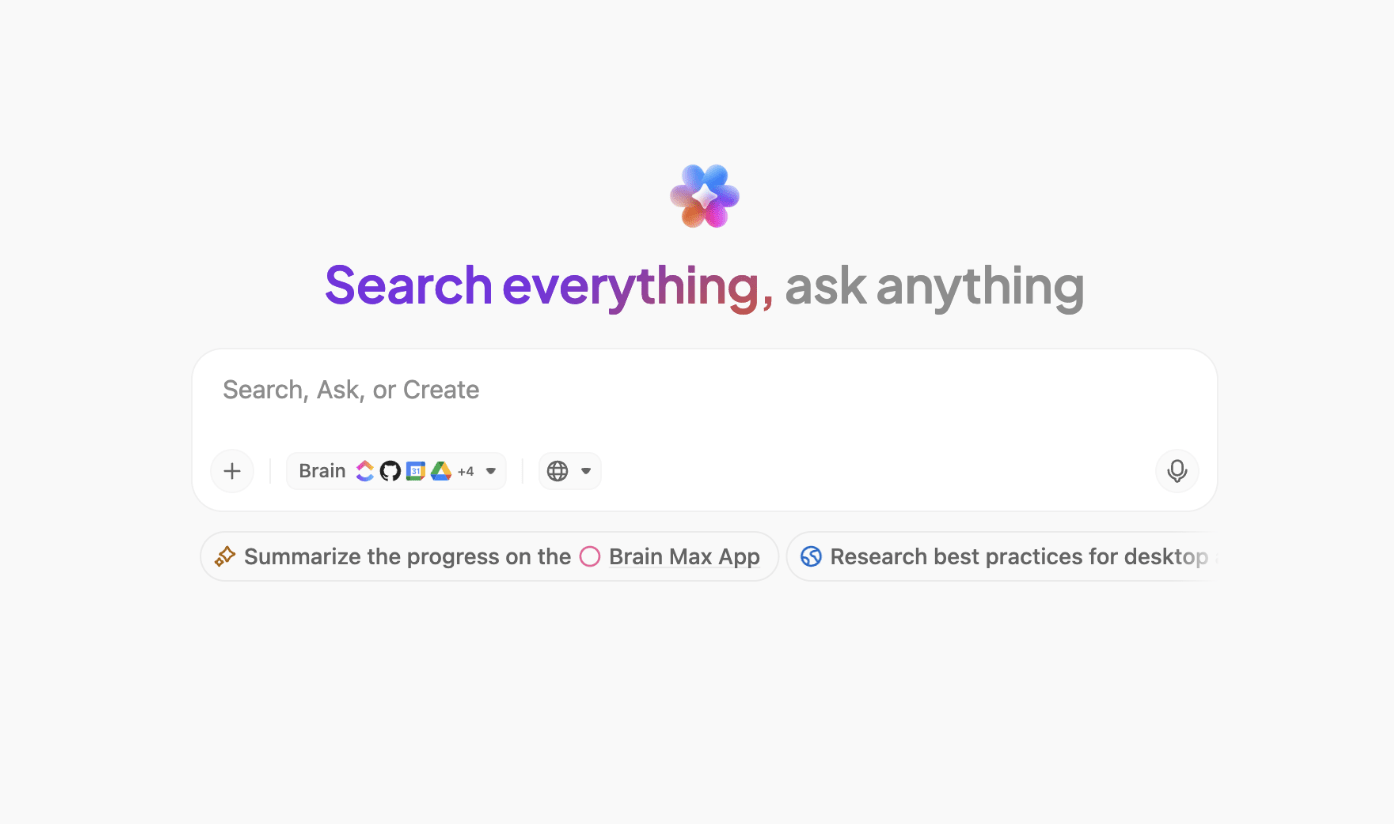
Want to consolidate tools and set your small business up for success in 2026? Check out our step by step playbook
A quick snippet from a real user:
ClickUp offers an impressive range of features that make it easy to customize workflows, manage tasks, and track progress in one place. I love how I can create views tailored to each project, set automations, and integrate it with other tools I already use. It’s very versatile, whether for personal task tracking or complex business operations. The templates and dashboards are especially helpful for keeping everything organized and easy to follow.
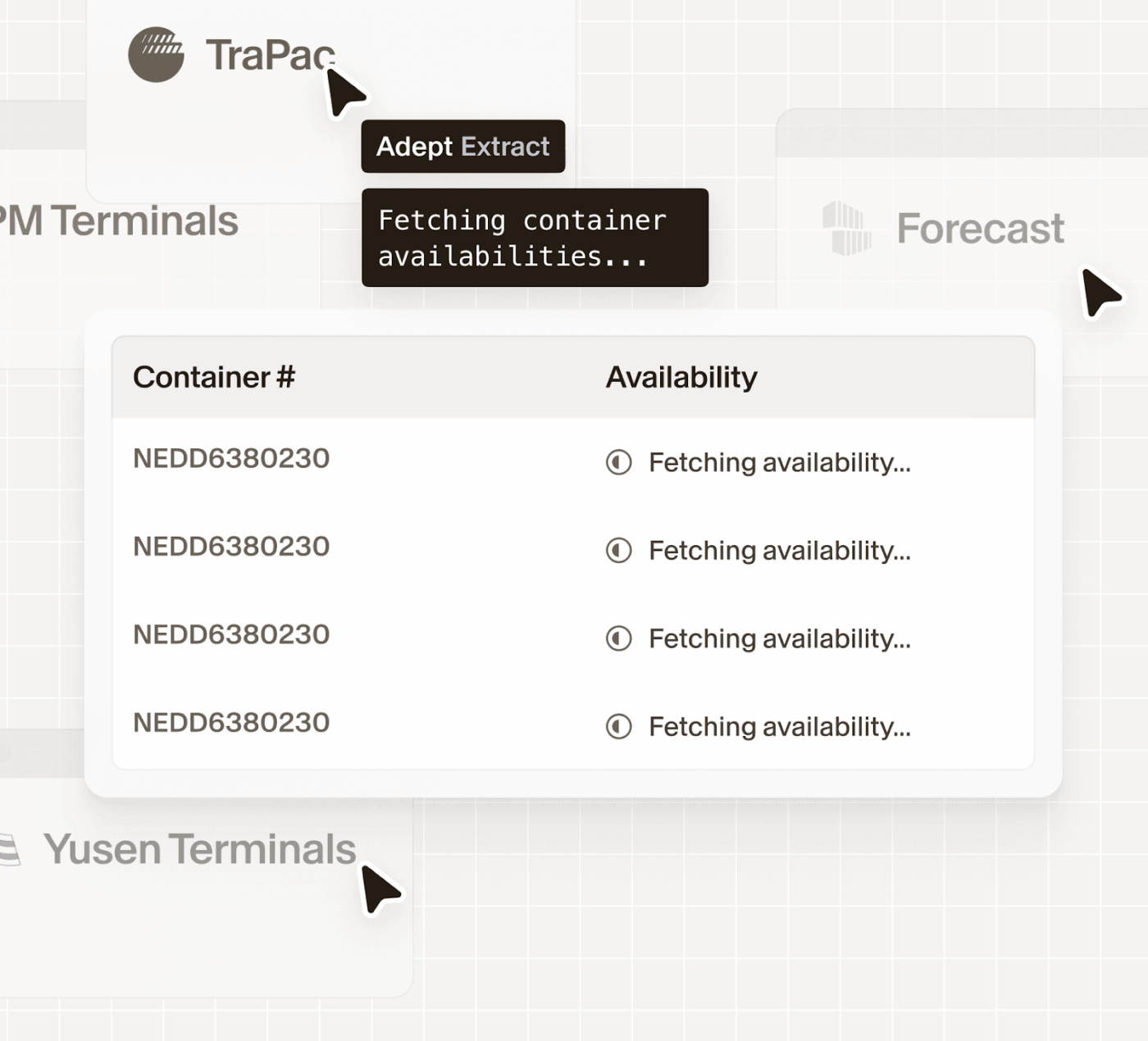
Adept is an agentic AI platform that empowers organizations with reliable agents that automate workflows across websites and software applications.
Its foundation of proprietary training data is unique. They’ve fed their models trillions of tokens from actual web interfaces and software usage, giving agents an intuitive understanding of how digital tools work in practice.
The platform’s strength lies in its multimodal approach. These agents can visually parse interfaces, understand spatial relationships between elements, and reason about complex layouts.
📖 Also Read: MCP vs. RAG vs. AI Agents: Who Leads AI

Crew AI supports enterprise automation by orchestrating types of specialized AI agents that collaborate like human project teams. Instead of relying on a single AI to handle everything, it creates ‘crews’ where each agent brings distinct expertise. This means one might handle research while another manages content creation and a third oversees quality control.
What’s compelling is how natural this feels compared to traditional automation. These agents coordinate seamlessly across complex workflows, adapting to changes and making decisions collectively.
The enterprise-ready platform has flexible deployment options, integrates with over 1,200 applications, and offers no-code tools.
🔍 Did You Know? 51% of organizations currently deploy AI agents, while another 35% plan to within the next two years.
💡 Pro Tip: Why write lengthy instructions to your AI assistant when you could just say them out loud? With ClickUp Brain MAX’s Talk to Text, you can!

Lindy is making AI automation accessible by letting businesses create ‘AI employees’ through simple natural language descriptions. Just tell Lindy what you want done, and it builds custom AI agents that can handle everything from sales outreach to meeting scheduling.
What’s impressive is the depth of integration: the platform connects with over 2,500 apps. This way, AI agents can work seamlessly across your entire tech stack. Lindy handles it all while maintaining enterprise-grade security with SOC 2 and HIPAA compliance.
Plus, it is model-agnostic, so you can choose which LLM to power your agents with.
Multiple AI agents can collaborate on complex workflows, much like human employees, while keeping humans in the loop for approval or escalation. You can even embed these agents directly on your website or access them through a mobile app.
Straight from a G2 review:
Lindy AI has been a game changer for me. It makes creating and managing AI agents simple, intuitive, and actually fun…That said, there are a couple of things I’d improve. I wish there were more tutorials or examples to help new users unlock the full potential of agents. Also, having to pay can feel like a barrier, though I do think the value is worth it once you see what’s possible.
📮 ClickUp Insight: 43% of people say repetitive tasks provide helpful structure to their workday, but 48% find them draining and a distraction from meaningful work.
While routine can offer a sense of productivity, it often limits creativity and holds you back from making meaningful progress.
ClickUp helps you break free from this cycle by automating routine tasks via intelligent AI Agents, so you can focus on deep work. Automate reminders, updates, and task assignments, and let features like Automated Time Blocking and Task Priorities protect your power hours.
💫 Real Results: Lulu Press saves 1 hour per day, per employee using ClickUp Automations—leading to a 12% increase in work efficiency.
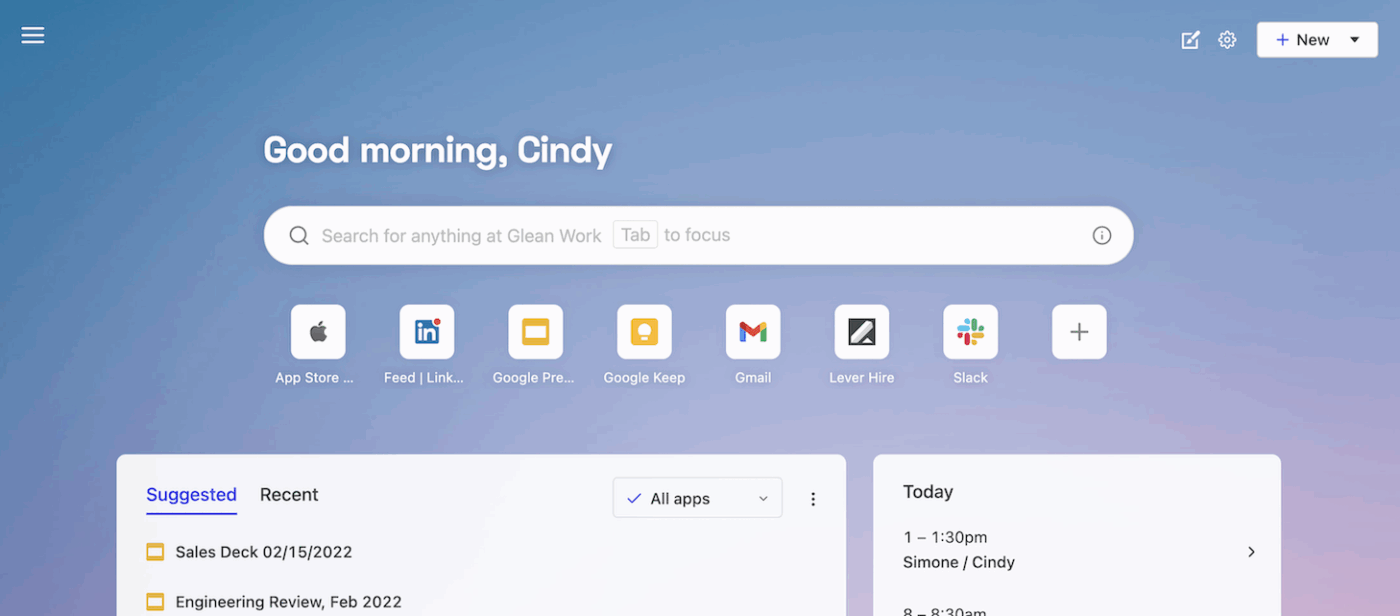
Glean addresses one of the enterprise’s biggest productivity killers: the endless hunt for information scattered across dozens of apps and systems. You don’t have to jump between Gmail, Slack, Jira, Salesforce, and countless other tools.
It creates an intelligent search experience that understands your company’s entire knowledge ecosystem while respecting all existing permissions and security protocols.
The platform’s AI assistant can answer complex questions, draft content, and even automate multi-step workflows. Need to research a prospect? Or want to automatically deflect common support tickets by pulling from your knowledge base? Glean’s autonomous agents handle these complex tasks seamlessly.
Here’s what a G2 reviewer had to say:
What I like best about Glean is how seamlessly it helps me find and access information across all my workplace apps. It saves time, reduces duplicated work, and makes collaboration more efficient.
🧠 Fun Fact: AI agents are also being tested in scientific discovery. In 2022, researchers at Carnegie Mellon and Meta trained an agent to suggest new chemical reactions. The system found reactions no human had previously documented, showing AI can nudge research into uncharted territory.

Penciled is changing the world of physical therapy clinic scheduling, essentially giving clinics a tireless AI front desk assistant.
The tool proactively manages the entire patient communication cycle. It helps with texting patients about missing appointments, handling reminders, filling cancellations from waitlists, and even processing late fees.
Its deep integration with EHR systems like WebPT makes it special. It reads your patient data and plan of care documents in real time, understanding who needs to be scheduled, when, and for what.
When a cancellation happens, Penciled immediately contacts waitlisted patients and books the first one to respond, all without any human intervention.
📖 Also Read: Process Map Templates for ClickUp, Excel, & Word

Enhans addresses the gap between promising technology and practical, real-world implementation. They’ve built a platform specifically for rapidly deploying intelligent AI agents that can be up and running in as little as seven days.
The system observes user actions within tools like email, CRMs, and spreadsheets to learn individual work patterns. It can then be instructed with high-level goals—such as “prepare the weekly sales report” or “follow up with all new leads from yesterday”—which it executes by autonomously navigating and operating the necessary software on behalf of the user.
The agents actively identify challenges and adapt their problem-solving approach based on real user needs and environmental factors.
🔍 Did You Know? In multi-agent environments like hide-and-seek simulations, bots developed emergent cooperation through clever teamwork strategies no one explicitly taught them, such as blocking doors with virtual boxes to trap their opponents.
📖 Also Read: Best AI Agents For Project Management

Naratix turns messy supplier data into clean, sellable product catalogs. Instead of spending countless hours wrestling with incomplete product descriptions and non-compliant listings, e-commerce businesses can now upload their raw data and watch it transform into polished, SEO-optimized catalogs overnight.
The AI enriches data with brand-consistent descriptions, proper categorization, and localized content for different markets while complying with marketplace requirements.
The platform integrates seamlessly with existing systems like Shopify, BigCommerce, and ERPs without requiring costly migrations.
📖 Also Read: How to Automate Your Sales Process With AI
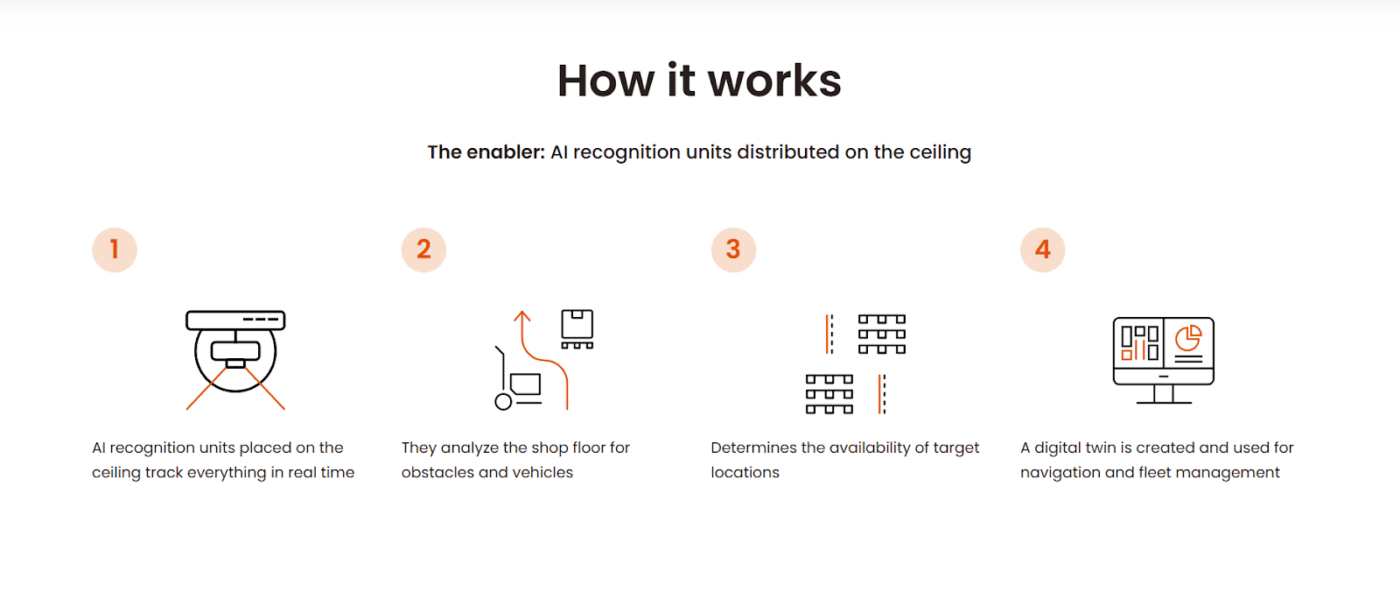
Pixel Robotics supports warehouse automation with AI-powered mobile robots that can navigate the reality of industrial environments.
The platform combines advanced computer vision, digital twins, reinforcement learning, and patented AI localization. This allows robotic arms and mobile robots to perform complex, non-repetitive tasks like picking and sorting varied items in a warehouse, assembling products with slight variations, or conducting quality control inspections.
These robots adapt to whatever environment they’re dropped into, detecting pallet positions on the fly and even recognizing and avoiding forklifts.
🧠 Fun Fact: OpenAI trained agents in robotic hand simulations to manipulate objects like a Rubik’s Cube. The agents learned to adapt to things like a ‘broken’ finger in the simulation, showing surprising flexibility in problem-solving.
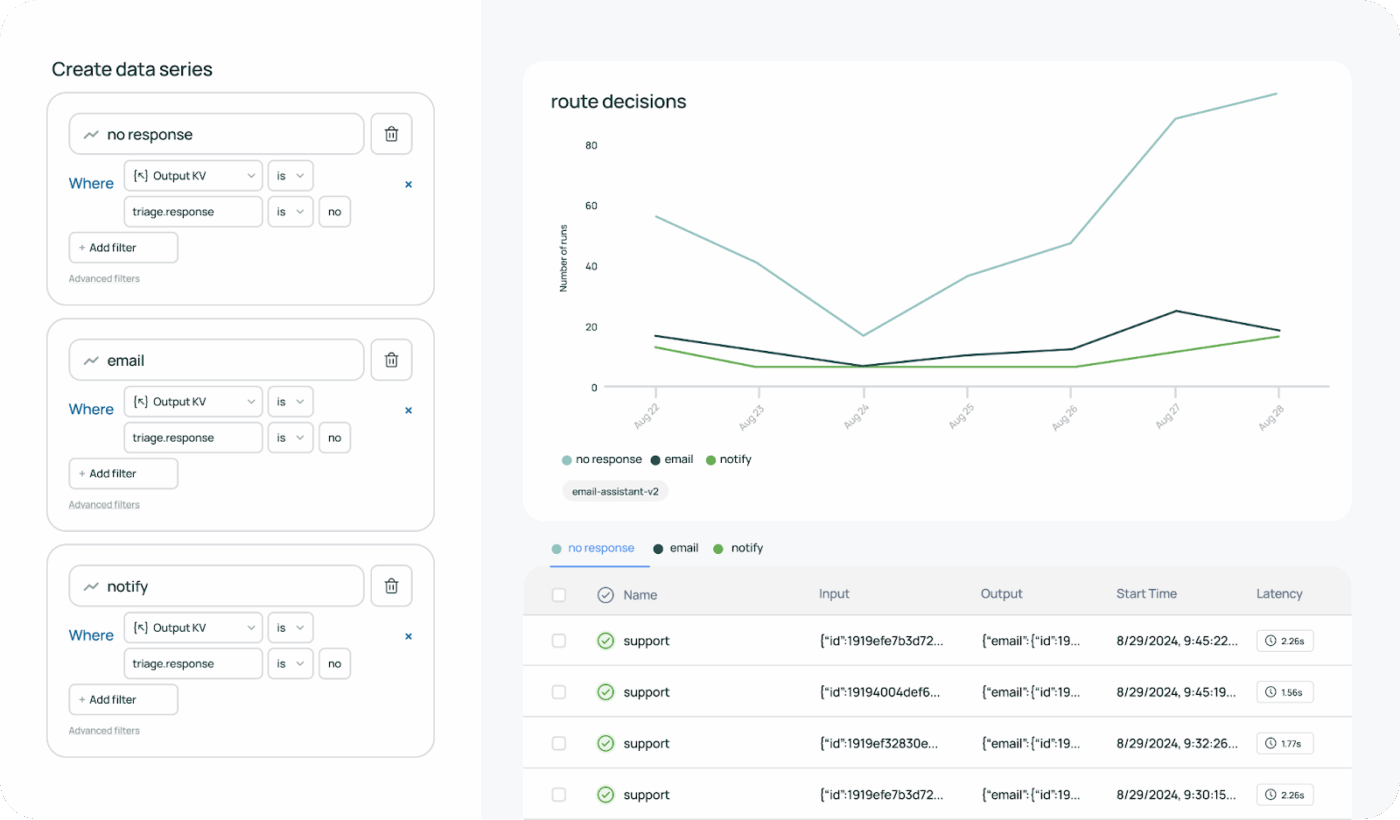
LangChain is not an end-user product but a foundational open-source framework for developers to build agentic AI applications.
It helps transform experimental language models into production-ready, intelligent applications. It offers tools to build, orchestrate, and deploy autonomous AI agents that can handle complex, multi-step workflows.
The AI workflow generator’s comprehensive approach to application development facilitates workflow orchestration, sophisticated memory management, and the creation of collaborative agents.
Additionally, its visual IDE and reusable templates allow teams to rapidly prototype and iterate on AI solutions.
From a G2 review:
Langchain provides a modular and extensible way to work with large language models. Its ability to chain together LLMs with tools, memory, and external data sources makes it incredibly powerful for real-world applications…The learning curve can be steep for newcomers, especially those without experience in working with LLMs or Python.
📖 Also Read: What Are LLM Agents in AI and How Do They Work?

Enso is an AI agent marketplace and automation hub built for small and mid-sized businesses. SMBs can subscribe to the tool to access over 300 pre-trained AI agents across marketing, sales, admin, funding, legal, customer support, and more.
There’s no setup complexity: agents are ready to go, guided by industry best practices, and integrate with existing tools like email, CRMs, and project management platforms. Businesses get end-to-end automation without needing technical expertise.
🔍 Did You Know? Nearly 9 in 10 executives say they’re increasing their AI budgets this year because of agentic AI. More than a quarter of them plan hikes of 26% or higher, showing that companies are preparing for ambitious, large-scale adoption.
The global AI agents market is on an explosive trajectory. It’s estimated to reach 50.31 billion in the next few years with a compound annual growth rate of 45.8%. This indicates an increased demand for automation, advancements in natural language processing, and a rising need for personalized customer experiences.
Funding trends mirror this momentum. AI agent startups raised $2.8 billion in venture capital, with analysts projecting total investment this year to exceed $6.7 billion.
Europe has emerged as an active hub, with over €1 billion raised across 65 deals in Q1, outpacing last year’s totals. This influx of capital underscores investor confidence that startups are leading the charge in transforming AI from passive assistants to autonomous colleagues capable of executing multi-step tasks with minimal human intervention.
Adoption is equally strong on the enterprise side. However, what’s striking is that adoption isn’t limited to tech-first firms. Mid-sized companies across healthcare, finance, and legal services are also integrating agents to automate compliance, customer support, and operational processes.
At the same time, the rapid rise of agentic AI has brought new challenges. Security and reliability are at the forefront, highlighted by Noma Security’s recent $100 million raise to safeguard autonomous systems from errors or malicious use.
This signals that while the market is expanding rapidly, sustainable success will hinge on practical implementation, trust, and demonstrable business value.
📖 Also Read: AI Orchestration Tools for Business Workflows
Now, let’s look at some problems of using AI agents and strategies to mitigate them:
| Challenge or risk | Solution |
| Data security and privacy | Implement end-to-end encryption, robust access controls, compliance audits, and AI-specific data handling procedures |
| Bias, fairness, and discrimination | Ensure diversity in training data, establish fairness metrics, and regularly test for algorithmic bias |
| Regulatory compliance | Stay updated with laws (e.g., GDPR), conduct regular audits, and design compliant AI workflows from the outset |
| Operational reliability | Set up oversight loops, continuous monitoring, fallback mechanisms, and assign operational owners to agent behavior |
| Model positioning and manipulation | Secure model pipelines, monitor for adversarial activity, run vulnerability scans, and limit exposure to untrusted data |
| Unpredictable or harmful behavior | Use human-in-the-loop safeguard systems for critical decisions, test agent responses in dynamic environments, and limit autonomy |
| Integration with legacy systems | Invest in middleware, API layers, and phased migration plans; prioritize interoperability |
| Vendor lock-in | Favor open standards, modular architectures, and maintain the option to switch vendors or platforms |
| Over-optimization or goal misalignment | Periodically review and update agent objectives, test for alignment, and involve stakeholders in optimization criteria |
| Continuous cost and maintenance burden | Budget for ongoing retraining, updates, and compliance with evolving requirements; automate maintenance tasks where possible |
📮 ClickUp Insight: 13% of our survey respondents want to use AI to make difficult decisions and solve complex problems. However, only 28% say they use AI regularly at work.
A possible reason: Security concerns! Users may not want to share sensitive decision-making data with an external AI. ClickUp solves this by bringing AI-powered problem-solving right to your secure Workspace.
From SOC 2 to ISO standards, ClickUp is compliant with the highest data security standards and helps you securely use generative AI technology across your workspace.
AI agents are steadily moving from niche experiments to mainstream business tools, reshaping how work gets done across industries.
Analysts expect the market to expand at an annual rate of over 45%, with nearly every enterprise planning to increase adoption in the next 12 months. This momentum is fueled by a mix of practical wins, like productivity gains and reduced manual work, and the promise of more autonomous collaboration between humans and systems.
Here are some trends defining what’s next:
🔍 Did You Know? 58% of companies use AI agents for research and summarization, while 53.5% rely on them for personal productivity tasks like scheduling and drafting emails.
The AI agent startups we just walked through are pushing the boundaries of what AI agents can do. This includes automating research, optimizing customer experiences, or driving entire workflows forward.
ClickUp already gives you an all-in-one hub where tools like ClickUp Brain, AI Agents, and Automations connect seamlessly with your tasks, docs, and team comms.
If you want to move beyond AI as a concept to actually using it to get work done smarter and faster, ClickUp is the solution.
Sign up to ClickUp for free today! ✅
© 2026 ClickUp